When people think of lawyer advertising, television commercials, radio spots, or online search ads often spring to mind — not necessarily billboard advertising. That being said, billboard advertising (along busy highways, near public transit routes, in city centers, etc.) has long been an effective strategy for law firms looking to visually anchor themselves in their local market. Law firms need to consider their advertising budgets when planning billboard advertising, especially in the competitive landscape post-pandemic.
Billboard advertising can help cultivate brand recognition, allow prospective clients to easily recall a firm’s name when legal needs arise, and can reinforce a professional image. But how effective is this form of marketing for lawyers, and what factors determine whether a billboard will convert curious onlookers into paying clients?
Let’s take a closer look at billboard advertising in the legal context. Keep reading to learn more about some of the basic issues!
The Effectiveness of Lawyer Billboard Advertising
The effectiveness of billboard campaigns for lawyers often depends on audience targeting, clarity of message, and location. Billboard impressions tend to be more passive—people glance at them while commuting or stuck in traffic, rather than actively seeking out legal representation at that exact moment. Still, this approach can help position a firm as a known community presence. When individuals later search for an attorney, their memory of a particular firm’s name and slogan may guide their decision. Consistency in messaging is also key; when the same billboard or series of billboards repeat in a certain geographic area, they leave a lasting imprint on the minds of local residents.
Additionally, the success of a billboard campaign often hinges on the nature of the legal services offered. Personal injury lawyers, for instance, might benefit greatly from a billboard because accidents and injuries are unexpected events. When someone involved in an auto accident recalls the name of a law firm from a billboard they see on their daily commute, they may be more inclined to reach out. By contrast, more specialized or corporate-focused practices—such as antitrust lawyers or international trade firms—might find billboard advertising less effective, given the narrower pool of potential clients. Billboard effectiveness for lawyers therefore depends on a precise mix of branding, location, legal niche, and memorable design. When done well, it can be a valuable piece of a broader marketing strategy.
The Three Types of Billboard Ads
For law firms venturing into outdoor advertising, understanding the distinct types of billboard ads is crucial for selecting the most appropriate format and placement. Law firm advertising involves both traditional and digital methods, and billboards are a key component. While there are many variations, the most common categories can be loosely grouped into three types: static billboards, digital billboards, and mobile billboards.
- Static Billboards: These are the traditional, paper or vinyl-printed billboards affixed to large frames that everyone has seen along highways, local roads, and city centers. Static billboards offer a constant presence and can be particularly effective for building long-term brand awareness. Since the design remains in place for weeks or months, it allows for repeated exposure to the same audience passing by regularly. For law firms that rely on name recognition and want to give prospective clients a sense of stability and reliability, static billboards can reinforce the impression that the firm is a permanent fixture in the community. However, updating or altering static billboard content is a slower process, limiting adaptability in response to changes in legal focus, seasonal campaigns, or evolving client needs.
- Digital Billboards: Digital billboards use LED screens to display rotating content. They can cycle through multiple advertiser messages every few seconds, making them more dynamic and engaging than their static counterparts. For lawyers, digital billboards can highlight various practice areas at different times of the day or week, potentially targeting distinct audiences—such as displaying a message about DUI defense during late-night hours. They also provide the flexibility to update ads quickly, making it easier to adapt to news stories, legislative changes, or special promotions. While digital billboards often cost more, the versatility and eye-catching visuals can significantly boost engagement and awareness for law firms.
- Mobile Billboards: Mobile billboards are ads placed on vehicles—often large trucks with billboard-sized panels driving around busy areas or parked strategically to capture attention. Mobile billboards give law firms the freedom to “bring” their messaging directly to target neighborhoods, courts, or community events. This type of billboard can be highly impactful for launching new practices, announcing new office locations, or promoting limited-time offers. The major advantage here is portability and the ability to meet prospects where they live or work. However, the mobility and less permanent nature can reduce the long-term brand anchoring effect static placements provide.
Each of these billboard types has its own strengths and weaknesses. The choice often comes down to a law firm’s marketing objectives, budget constraints, and desired flexibility. By selecting the right type of billboard ad, lawyers can better ensure that their outdoor advertising efforts contribute to increased brand recognition and, ultimately, new clients.
Billboard Advertising for Lawyers: the Advantages and Disadvantages in Law Firm Marketing
As with any marketing strategy, billboard advertising comes with its own set of pros and cons that lawyers must carefully weigh before investing significant resources. A law firm must carefully consider its marketing budget before investing in billboard advertising. By understanding these advantages and disadvantages, a law firm can determine whether billboards align with its overall branding and business development goals.
Advantages:
- High Visibility and Brand Recognition: Billboards reach thousands of commuters and pedestrians daily, making them a powerful tool for brand imprinting. Constant exposure along a well-traveled route can turn the firm’s name and logo into a familiar presence in the community’s collective memory.
- Simplicity of Message: Billboard advertising forces simplicity. Given only a few seconds of a passerby’s attention, lawyers must present a concise, memorable message. This often leads to strong brand cohesion: a firm’s name, a clear slogan, and a single compelling visual can help leave a lasting impression.
- Local Market Targeting: Lawyers often serve clients within a specific geographic radius. Billboards, by nature, target local communities. Firms can place ads near courthouses, law schools, or bustling commercial districts where prospective clients are likely to be found.
- 24/7 Exposure: Unlike time-limited TV or radio spots, billboards work around the clock. They do not “turn off,” and so long as the placement is maintained, they will keep delivering impressions every hour, every day.
Disadvantages:
- Limited Information Conveyance: The brevity that makes billboards eye-catching also restricts the depth of information conveyed. Prospective clients can’t learn details of the firm’s practice areas or read testimonials at a quick roadside glance. This often means that billboard ads are best used for initial brand awareness rather than nuanced service promotion.
- Uncertain Audience Engagement: Billboards reach a broad audience with varying degrees of relevance. Many people who see the ad have no need for legal services at that moment. Measuring engagement can be tricky—tracking conversions from a billboard alone is challenging without supporting marketing efforts such as a memorable phone number, a distinct website URL, or QR codes.
- Cost and Competition: Premium billboard placements, especially in urban centers or prime commuter corridors, can be expensive. Moreover, if multiple law firms advertise in the same areas, it can dilute the impact, making it harder to stand out from the crowd.
- Limited Flexibility: For static billboards especially, once an ad is printed and placed, changes can’t easily be made. If the firm’s focus shifts, or if external factors (like new laws or recent high-profile cases) arise, the messaging might not be as relevant over the entire campaign period.
Overall, while billboards can effectively build a law firm’s brand presence and local recognition, understanding the legal industry is crucial for determining whether billboards align with a law firm’s branding and business development goals. They are best used as part of a multifaceted marketing mix rather than as a standalone solution.
Is Billboard Advertising for Lawyers Effective Compared to Alternative Marketing Strategies?
Given the complexity of modern marketing channels, is billboard advertising still worth the investment for lawyers when compared to more targeted and trackable options, such as online advertising, search engine optimization (SEO), social media campaigns, or community sponsorships? Integrating billboard advertising into a broader digital marketing strategy can enhance lawyers’ overall marketing effectiveness.
Billboards vs. Paid Online Advertising: Online advertising platforms like Google Ads, Facebook Ads, and LinkedIn campaigns offer precise targeting based on demographics, interests, and geographic location. They can deliver ads directly to users actively seeking legal services, making them inherently more conversion-focused. Additionally, online ads are measurable. Marketers can track metrics like click-through rates, cost per acquisition, and return on ad spend. By contrast, billboard advertising is more of a brand-awareness tool, difficult to measure, and less directly correlated with lead generation. However, online channels can feel crowded and impersonal. Billboards may help differentiate a firm in the real, physical world, signaling permanence, trustworthiness, and a tangible local presence that online ads alone cannot replicate.
Billboards vs. SEO Articles: Search engine optimization helps ensure a law firm’s website appears near the top of search results when prospective clients look for specific services. SEO is highly targeted because it reaches users at the exact moment they need legal help. The catch is that SEO can be slow to show results and requires ongoing expertise and effort. Billboards, on the other hand, can quickly raise brand awareness in a defined geographic area, potentially leading to more “brand-search” traffic over time. Ideally, a combination of billboard advertising to build name recognition and effective SEO to capture that recognition when clients search online can be mutually reinforcing.
Billboards vs. Social Media Campaigns: Social media platforms allow law firms to share more detailed content—case studies, legal tips, team bios, and community involvement—thus showcasing their expertise and personality. Unlike billboards, social media content encourages interaction, two-way communication, and community building. While billboards are static, social media allows for quick modifications to messaging, direct client engagement, and targeted paid promotions, including social media ads. However, billboards can reach audiences that social media might miss, such as older demographics that are less active online or commuters who are less inclined to follow legal content on their feeds. In essence, each channel has strengths: social media nurtures trust and engagement, while billboards ensure broad, continuous exposure and local brand saturation.
Billboards vs. TV and Radio Ads: Traditional advertising methods like TV and radio ads can complement billboard advertising by reaching a wide audience through different mediums. TV and radio ads offer the advantage of audio-visual and auditory engagement, respectively, which can be particularly effective in creating memorable impressions. While billboards provide constant visibility in a specific location, TV and radio ads can deliver repeated messages to a broader audience, enhancing overall brand recall. Combining these traditional methods with digital strategies can create a comprehensive marketing approach.
Finding the Right Mix
Ultimately, the effectiveness of billboard advertising for lawyers comes down to how it fits into a broader marketing ecosystem. By itself, a billboard may not deliver the best return on investment if the goal is immediate leads. However, as a long-term branding measure and a means to stay top-of-mind in a local market, it can be very effective, especially when combined with alternative, more targeted strategies. The synergy of multiple channels—billboards for widespread awareness, digital ads for direct lead capture, SEO for search visibility, social media for trust building, and TV and radio ads for broad reach—often yields the strongest results. Finding the right mix of billboard advertising and other methods is crucial for effective law firm marketing.
Contact Walker Advertising for Helping Growing Your Firm’s Potential Clients
Whether you’re a solo lawyer or are part of a larger firm with plans for expansion, it’s important to grow you client base in order to hit your revenue and client growth goals. Here at Walker Advertising, we can help. We operate a number of popular attorney networks — including our Los Defensores and 1-800-THE-LAW2 brands — through which firms are able to access leads for various legal claims.
The leads we acquire through our various online marketing efforts — from social media marketing to targeted web ads — have been pre-qualified by our team so that you aren’t hassled by a flood of leads that are simply not relevant or actionable for your purposes. By accessing these quality leads, you’ll be well-equipped to select the best ones to grow your firm business.
Contact Walker Advertising today to connect to a member of our team who can explain how our legal networks can help your firm business thrive in this ever-changing digital marketing landscape.
We look forward to assisting you.






